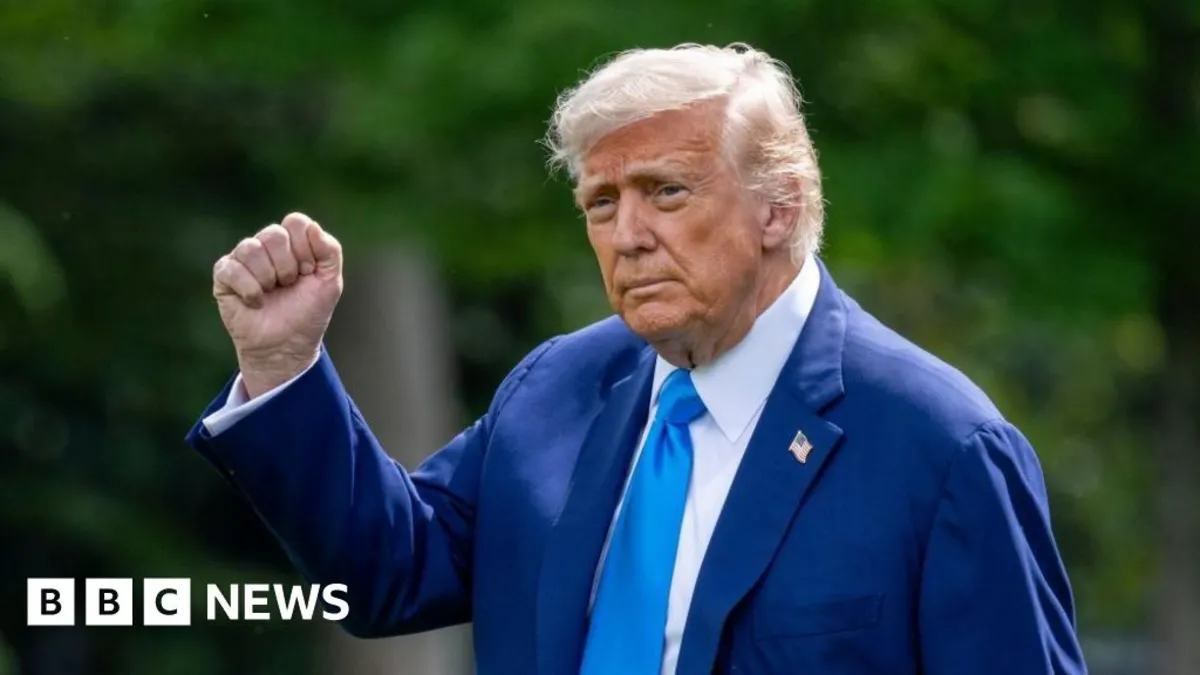
On Monday, at 00:00 ET (05:00 BST), President Donald Trump's sweeping new travel ban officially took effect, restricting citizens from 12 countries from entering the United States. This order, signed by Trump the previous week, specifically targets nationals from Afghanistan, Myanmar, Chad, Congo-Brazzaville, Equatorial Guinea, Eritrea, Haiti, Iran, Libya, Somalia, Sudan, and Yemen. Additionally, nationals from seven other countries, including Burundi, Cuba, Laos, Sierra Leone, Togo, Turkmenistan, and Venezuela, will face partial travel restrictions.
President Trump indicated that the list of restricted countries may be revised if significant improvements occur in their security protocols. Furthermore, he noted that other nations could be added to the list as new threats emerge globally. This new travel ban marks the second time Trump has enacted such restrictions, following a similar order issued during his first term in 2017.
The White House has articulated that these common sense restrictions are designed to protect American citizens from potential threats posed by foreign nationals. However, there are exceptions in place that allow certain individuals from the affected countries to enter the US. These exceptions include:
Lawful permanent US residents Immediate family members of lawful residents holding immigrant visas US government employees with Special Immigrant Visas Individuals involved in adoption processes Dual nationals traveling on passports not from the restricted countries Afghan nationals holding Special Immigrant Visas Holders of immigrant visas for ethnic and religious minorities facing persecution in Iran Foreign nationals traveling with specific non-immigrant visas Athletes and their teams attending major sporting events, including the men’s football World Cup in 2026 and the Summer Olympics in Los Angeles in 2028Moreover, the US Secretary of State has the authority to grant exemptions on a case-by-case basis if an individual is deemed to serve a national interest of the United States.
In a video posted to his Truth Social platform, Trump cited a recent attack in Boulder, Colorado, emphasizing the risks posed by foreign nationals who have not undergone sufficient vetting. The incident, which occurred on June 1, resulted in injuries to twelve individuals and was labeled by the FBI as a suspected terror attack. The assailant, identified as an Egyptian national, raised questions about the efficacy of the travel ban, as Egypt was not included in the restricted countries list.
The latest travel ban is expected to face legal challenges, prompting immediate reactions both domestically and internationally. In response, Chad has suspended all visas for US citizens, while Somalia has pledged to collaborate with the United States to address security concerns. The African Union, representing all African nations, has called for constructive dialogue between the US and the affected countries.
In the United States, the travel ban has sparked a wave of condemnation from Democratic lawmakers. Congresswoman Pramila Jayapal criticized the expansion of Trump's previous Muslim ban, arguing that it would further isolate the US on the global stage. Conversely, supporters of the ban, such as Congressman Clay Higgins from Louisiana, argue that travel to the US should be viewed as a privilege rather than an inherent right.
As the implications of the travel ban unfold, it remains to be seen how it will impact international relations and the lives of those from the affected nations.